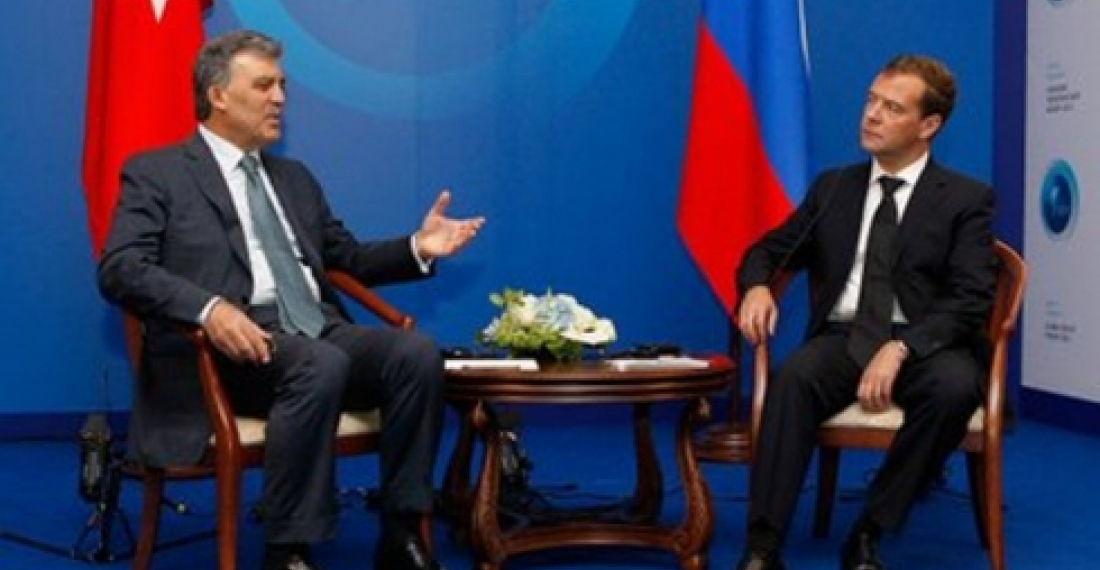The President of Russia, Dimitri Medvedev, and the Turkish President, Abdullah Gul met in Yaroslavl yesterday on the margins of the Global Policy Forum. It is understood that the Caucasus Region featured highly on the agenda of the meeting between the two leaders, who also reviewed a wide range of other international issues.
Turkish media reported that ahead of his visit to Russia, Gül, in remarks delivered to Russian media, reiterated his country’s position with regard to the Nagorno-Karabakh conflict between Armenia and Azerbaijan. “The importance of the South Caucasus, as a region neighboring Turkey and Russia, is obvious. We are guided by the strategy aimed at the establishment of peace, stability and welfare in the region; we are also trying to achieve peace, security and cooperation here,” Gül was quoted as saying in remarks published on Thursday in the Moskovskiy Komsomolets newspaper. “I suppose that the position of Turkey regarding this issue coincides with Russia’s standpoint. The progress to be achieved on this way will undoubtedly have [a] positive influence on Turkish-Armenian relations,” Gül added.
Both Gul and Medvedev also addressed the Forum.

The two presidents later paid tribute to the memory of the Lokomotiv ice hockey team players and Yak-42 crew members killed in the plane crash near Yaroslavl. The two leaders laid flowers at the entrance to the team’s home stadium, Arena-2000 Lokomotiv, to commemorate the plane crash victims.
source: commonspace.eu newsroom, with additional reporting from Todays Zaman and kremlin.ru.
photos courtesy of the Press Service of the President of Russia.






